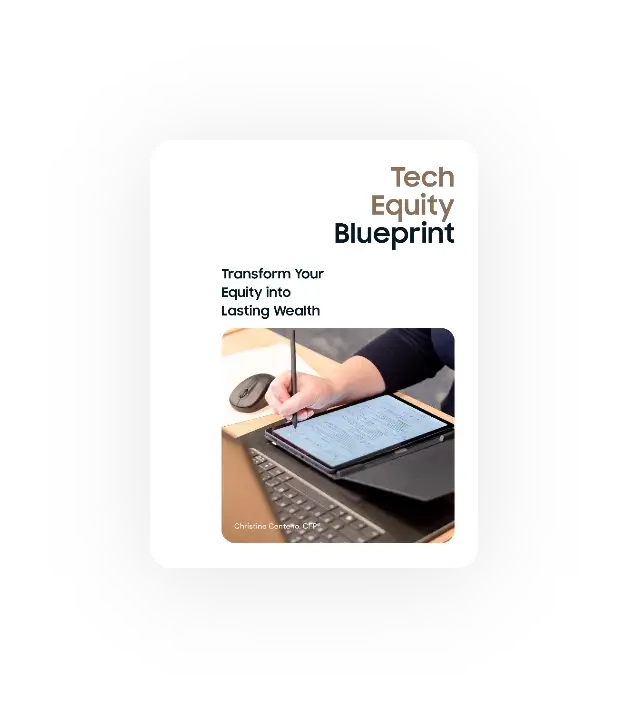BLOG / Financial News
How can I prepare for a recession?

If you’ve been listening to the news lately, you are well aware there’s been a lot of talk of an upcoming recession. When will the next recession occur? No one knows for sure. What is certain is that there will be another recession, it’s just part of the regular business cycle. As an investor, you will likely live through many market ups and downs over your lifetime. Here are some practical things you can do now to prepare for the inevitable.
Build Your Cash Reserve/ Emergency Fund
A cash reserve can be used to pay for unexpected expenses such as car repairs, medical bills, or to cover normal living expenses in case of a job loss. For many retirees, it also serves as a means to cover monthly retirement living expenses. Having a cash reserve saves you from having to use a credit card or take out a loan to cover the unexpected.
Your emergency fund should always be invested in cash and not the stock market. It’s easy to be tempted to invest your cash in something that will earn more than a boring old bank account. Don’t do it! You wouldn’t want your emergency fund invested in anything that may fluctuate in value since it’s intended to act as a safety net when you need it most. Why might this be even more important in a recession? Many people plan to use credit lines in the case of an emergency expense, however, credit is not always a viable option. In 2008, many people had their credit lines frozen or closed.
Having a sufficient cash reserve provides the flexibility to pull from your investments at the most opportune time. This means you can leave your investments alone when the markets are down and allow them time to recover in value before taking any withdrawals. Those without a reserve don’t have this luxury.
Be Informed when it comes to your investments:
-
Don’t get spooked.
When the inevitable happens, don’t get spooked and take everything out of the market. I agree it’s easier said than done when it comes to preventing emotions from kicking in. However, being well informed about your investments will make it much easier. If you hang in there, over the long-term, your investments will most likely increase in value.
Imagine a 40% off sale at your favorite department store, sounds incredible, right? Now what about a 40% decline in the market, yikes! But what if you looked at both events in a similar way? As an opportunity to buy things on sale. I’d argue you can only look at things from that perspective if you are comfortable with how you are invested in the first place. So how do you do that?
-
Be comfortable with your investment allocation
How aggressively are you allocated across all of your investments? If the market declines, what type of decline in your investments can you expect? Are you okay with that? Be educated and be informed. Knowing the answers to these questions can make you feel a whole lot better when the market experiences a decline. If we reasonably know what to expect, we tend to make smarter decisions.
If you could never stomach the ups and downs of an all-stock portfolio, then you should never be invested in one.
-
Invest according to your time horizon
If you’ve got dollars that you need for something soon (like a down payment on a house or college tuition) you can’t afford to lose these dollars and they shouldn’t be invested in the market. However, if your dollars are for retirement and that’s 20 or more years away then you’ve got time to endure the ups and downs of the market. Your dollars have a chance to recover their value after experiencing a decline.
Before the evitable happens, make the right adjustments -build a cash reserve and take a good look at your investments. You’ll thank yourself later. If you’re not quite sure how to make these adjustments then it may be time to hire a financial planner.
Interested in learning more? Read more about my firm, and check out my service options.
Disclaimer
The information on this site is provided “AS IS” and without warranties of any kind either express or implied. To the fullest extent permissible pursuant to applicable laws, Simplicity Wealth Management LLC (referred to as “SWM”) disclaims all warranties, express or implied, including, but not limited to, implied warranties of merchantability, non-infringement, and suitability for a particular purpose. SWM does not warrant that the information will be free from error. None of the information provided on this website is intended as investment, tax, accounting or legal advice, as an offer or solicitation of an offer to buy or sell, or as an endorsement of any company, security, fund, or other securities or non-securities offering. The information should not be relied upon for purposes of transacting securities or other investments. Your use of the information is at your sole risk. Under no circumstances shall SWM be liable for any direct, indirect, special or consequential damages that result from the use of, or the inability to use, the materials in this site, even if SWM or an SWM authorized representative has been advised of the possibility of such damages. In no event shall Simplicity Wealth Management have any liability to you for damages, losses, and causes of action for accessing this site. Information on this website should not be considered a solicitation to buy, an offer to sell, or a recommendation of any security in any jurisdiction where such offer, solicitation, or recommendation would be unlawful or unauthorized.



